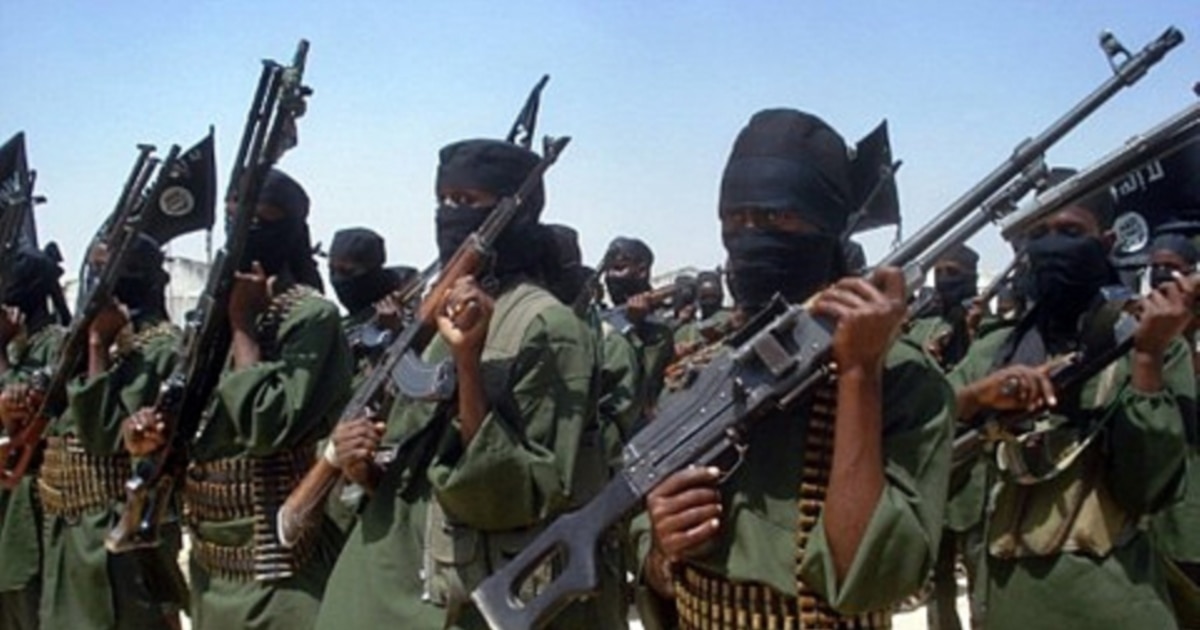Facebook Twitter (X) Instagram Somali Magazine - People's Magazine
Somalia’s military court carried out the execution of two al-Shabaab fighters on Monday after finding them guilty of participating in killings and ambush operations in Mogadishu. The men, identified as Ibrahim Adan Madeey and Abdirahman Mohamed Abdullahi, were put to death by firing squad following a final ruling from the court.
Both men were members of al-Shabaab’s military wing, a branch of the extremist group responsible for organizing and carrying out violent attacks across the country. Court documents revealed that Madeey and Abdullahi had been directly involved in several operations targeting civilians and security officers. They were also accused of playing active roles in ambushes that led to multiple deaths.
The court emphasized that its decision followed due process. Their cases were first investigated, then reviewed by prosecutors before being presented for a final ruling. According to the court, evidence confirmed their involvement in ambush attacks and targeted killings that terrorized parts of Mogadishu. The executions, the court explained, were meant to deliver justice for the victims and send a strong warning to other members of the extremist group.
In recent months, Somalia’s military court has increasingly turned to capital punishment as a tool in its fight against al-Shabaab. Several other militants convicted of murder, bombings, and ambush attacks have already been executed this year. Others remain on death row while awaiting the outcome of their appeals or ongoing trials.
Al-Shabaab has been waging an insurgency in Somalia for more than 15 years. The group regularly carries out bombings, assassinations, and assaults targeting both civilians and government officials. Mogadishu, in particular, has suffered repeated attacks, with security forces often finding themselves the focus of ambushes by armed fighters. These attacks have taken a heavy toll, leaving hundreds dead and many more injured in recent years.

Somali authorities say that enforcing the death penalty is part of a wider effort to deter al-Shabaab’s campaign of violence. Military courts have the authority to try suspected members of the group, especially those accused of crimes such as murder and terrorism. By carrying out swift trials and punishments, the government hopes to reassure citizens that justice is being served and that those responsible for bloodshed will not go unpunished.
The executions of Madeey and Abdullahi reflect the government’s tougher stance in confronting al-Shabaab at both the battlefield and judicial levels. While security forces continue to conduct military operations in different regions to weaken the group’s strongholds, the courts are handling the legal side by holding captured fighters accountable.
For many Somali citizens, the executions highlight the seriousness of the state’s response to terrorism. Families who have lost loved ones to the group’s violence see such punishments as a step toward justice, though opinions on the use of capital punishment remain divided.
Somalia’s leaders maintain that such measures are necessary in the current context, as the country continues to battle a group that has shown little hesitation in targeting innocent lives. The execution of the two fighters is one of several recent examples of the government’s determination to dismantle al-Shabaab’s network and bring those responsible for violence to justice.

